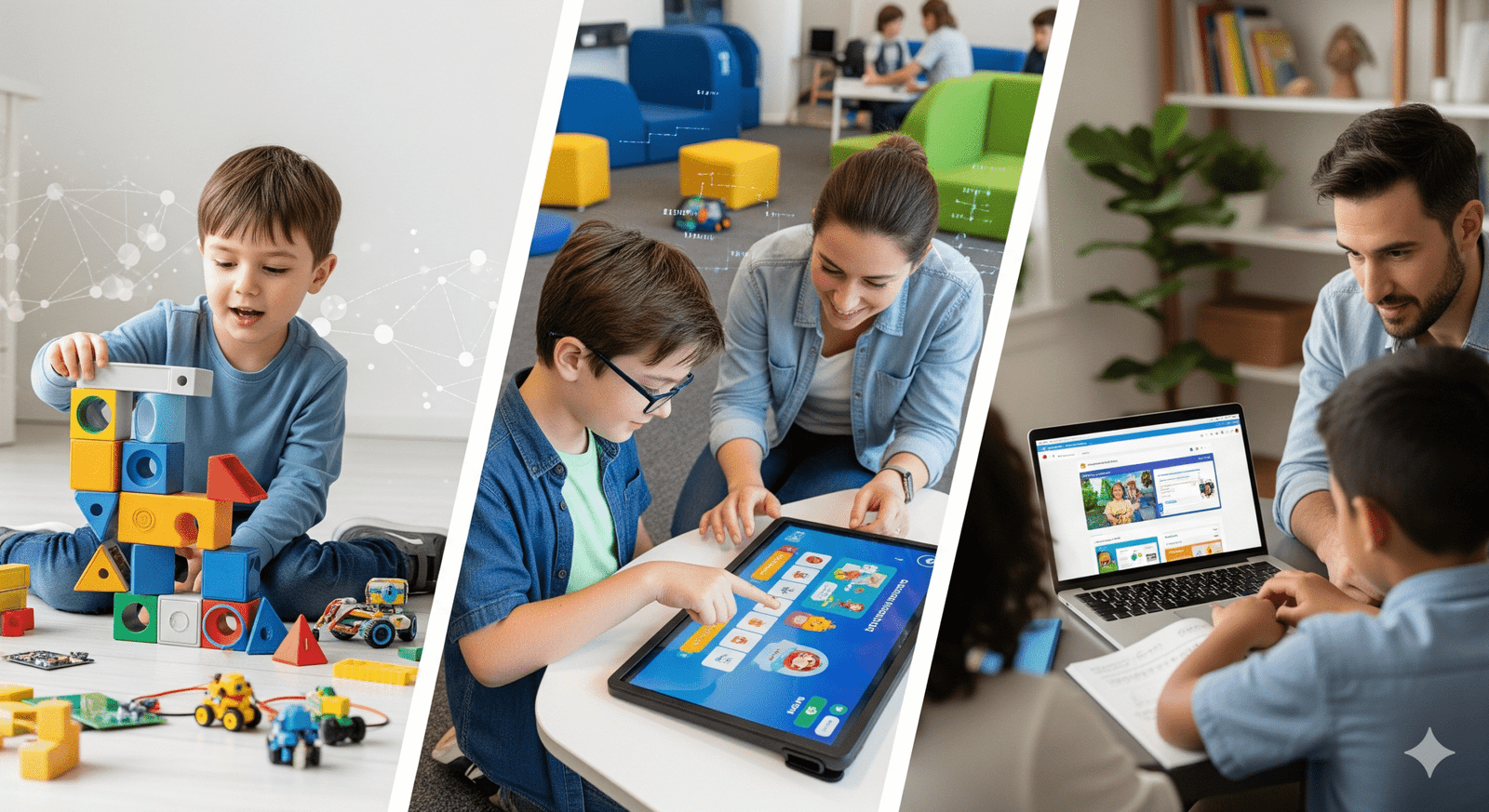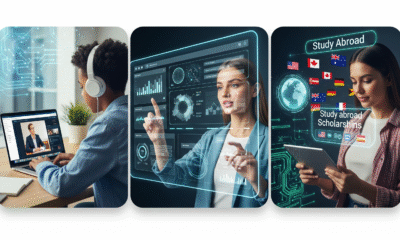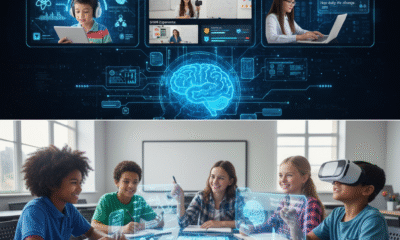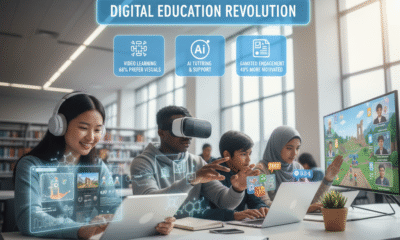Introduction
Education is not one-size-fits-all. In 2025, parents, educators, and policymakers are realizing that specialized learning strategies are essential for addressing the diverse needs of students. From STEM activities for preschoolers to teaching methods for students with ADHD, and from play-based learning models to homeschooling strategies for working parents, specialized approaches are transforming the way children learn.
This article explores these specialized education topics in depth, showcasing trends, strategies, and the role of digital innovation in shaping better outcomes.
- STEM Activities for Preschoolers
Why STEM early?
- Research shows that introducing Science, Technology, Engineering, and Mathematics (STEM) concepts early helps children develop critical thinking and problem-solving skills.
- Activities like building with LEGO, experimenting with water and magnets, and coding games for kids make learning fun and practical.
Trending STEM resources in 2025:
- Osmo Coding Games: Hands-on coding activities for toddlers.
- Tinker Tots Engineering Kits: Build-and-learn toys designed for preschool classrooms.
- Digital STEM apps: Simple, gamified mobile apps where children learn sequencing, shapes, and logic.
👉 Parents using STEM activities at home report 25% higher engagement in preschoolers compared to traditional rote learning.
- Teaching Students with ADHD
The Challenge:
ADHD (Attention Deficit Hyperactivity Disorder) affects millions of students globally, making traditional teaching methods less effective.
Best Practices in 2025:
- Interactive Tools: Gamified apps like Khan Academy Kids break tasks into smaller, manageable chunks.
- Movement Breaks: Classrooms adopt flexible seating (bean bags, standing desks) to accommodate hyperactivity.
- Digital Tracking: AI-powered apps help track progress and provide feedback to teachers and parents in real time.
- Mindfulness in Class: Short breathing or focus exercises integrated into lessons improve concentration.
Case Study:
A school district in California introduced personalized learning apps for ADHD students. Within one academic year, reading comprehension scores improved by 18%, and behavioral incidents dropped by 22%.

- Play-Based Learning – The Joy of Education
What is Play-Based Learning?
Instead of rigid structures, children learn through exploration, role-playing, and creative activities. This approach emphasizes social skills, curiosity, and emotional growth.
Examples of Play-Based Models:
- Montessori Schools: Encourage independent learning through hands-on activities.
- Reggio Emilia Approach: Focuses on self-expression, creativity, and community-based projects.
- Digital Play Tools: Apps like ABC mouse blend structured lessons with fun, gamified play.
Why It Works:
- Increases motivation by connecting learning to real-world play.
- Strengthens collaboration skills.
- Boosts early literacy and numeracy through storytelling, puzzles, and role-play.
👉 A 2025 UNICEF report shows that children engaged in play-based learning score 30% higher in problem-solving assessments than those in rigid, lecture-heavy environments.
- Homeschooling Tips for Working Parents
Homeschooling is no longer limited to stay-at-home parents. In 2025, more working parents are choosing homeschooling, thanks to digital platforms and hybrid models.
Key Strategies:
- Time Management: Use online scheduling tools to balance work and learning hours.
- Blended Learning: Combine online courses (Coursera, Khan Academy) with offline hands-on projects.
- Community Support: Join homeschooling co-ops where parents share teaching responsibilities.
- AI Tutors: Use personalized AI tools to guide children through lessons when parents are busy.
- Dedicated Study Space: Set up a small, distraction-free area for learning at home.
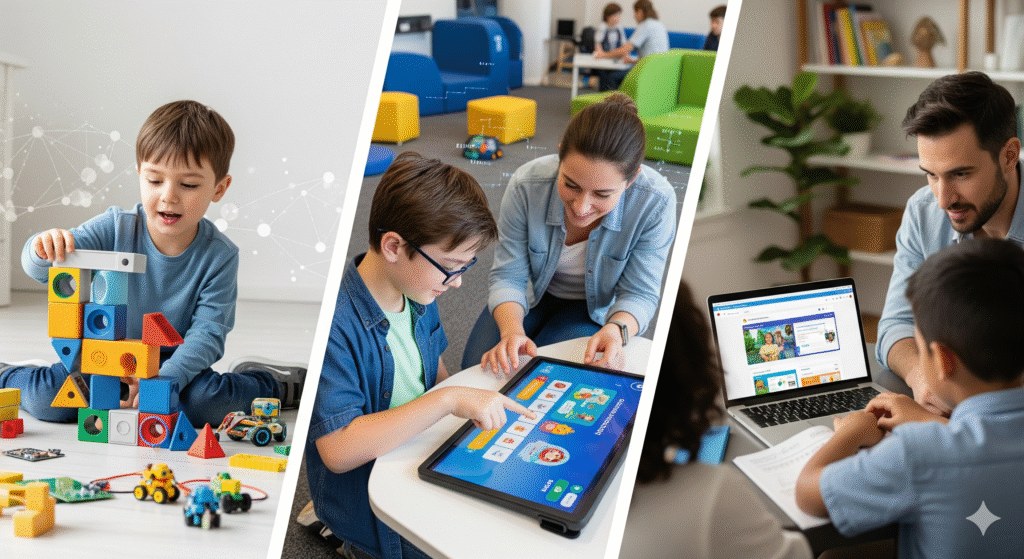
Real-Life Example:
In the UK, a group of working parents formed a homeschooling network where children meet twice a week for in-person group activities while learning individually online the rest of the week. This hybrid model allows parents to balance careers while ensuring children receive structured education.
Benefits of Specialized Education Approaches
- Tailored Learning: Meets unique student needs.
- Higher Engagement: Play, creativity, and personalized content boost motivation.
- Skill Development: STEM and problem-solving skills prepare students for future careers.
- Flexibility: Parents and educators can adapt based on time, resources, and learning styles.
Challenges
- Resource Gaps: Not all parents have access to STEM kits or AI-powered tools.
- Equity Concerns: Children from low-income backgrounds risk falling behind.
- Training Needs: Teachers and parents require training to apply these strategies effectively.
The Future of Specialized Education
- AI-Driven Personalization – Custom learning pathways for ADHD, STEM, or homeschooling students.
- Immersive Play-Based Tools – VR-based role-play simulations for experiential learning.
- Global Homeschooling Networks – Parents collaborating internationally to exchange content and best practices.
- Policy Support – Governments integrating play-based and specialized teaching models into mainstream curricula.
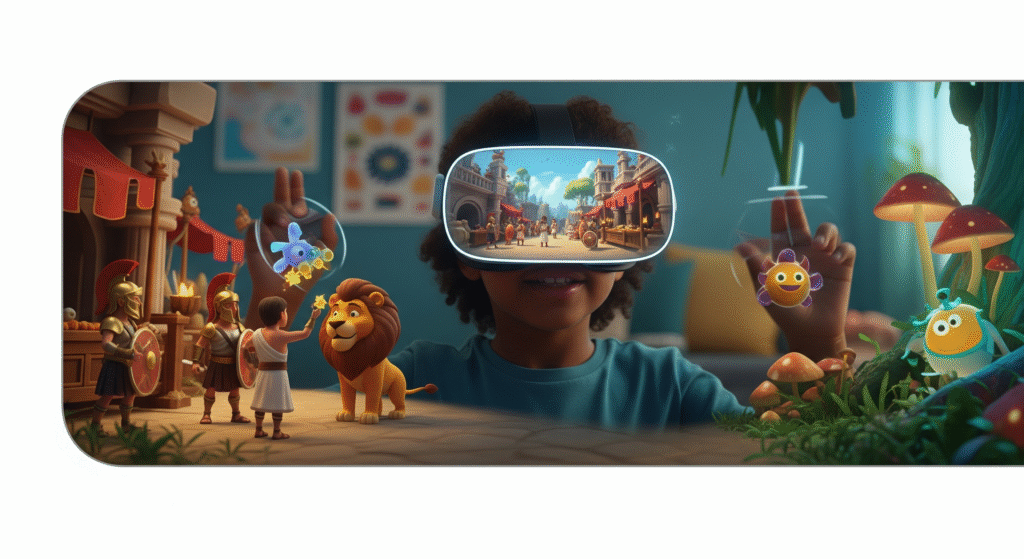
Conclusion
Specialized education topics such as STEM for preschoolers, ADHD teaching strategies, play-based learning, and homeschooling for working parents highlight a major shift in how society approaches education in 2025. The focus is no longer on uniformity but on personalized, engaging, and flexible learning models.
These specialized approaches not only enhance academic skills but also nurture creativity, resilience, and lifelong learning. With the help of digital platforms, AI tools, and collaborative learning communities, the future of education is becoming more inclusive, adaptable, and student-centered.

